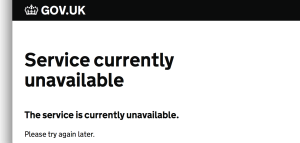HMRC’s consultation into off-payroll working in the private sector has now closed. Gordon Thrower, Senior Tax Manager at accountancy firm MHA MacIntyre Hudson, argues that IR35 has caused confusion and unfairness in the public sector and HMRC needs to develop a clearly defined test for employment status.
Recent events have highlighted fundamental problems with the public sector rules governing the application of IR35. The rules, and their problems, could be extended to the private sector as a result of this consultation.
The responsibility for determining whether an individual is an employee or providing a service through a limited company would shift from the limited company to the body engaging them. This has caused confusion and unfairness in the public sector and HMRC’s Check Employment Status Tool (CEST) still has reliability issues. This led some areas of the public sector to operate IR35 on a “blanket” basis – if you provide services through a limited company you were treated as falling within IR35 by default.
Despite recent improvements to CEST, private sector contractors should be concerned that the engagers of their services will be similarly tempted to apply IR35 by default, if and when the public sector rules are extended to the private sector. Although incorrect, such a practice is understandable as, under the current public sector rules it’s the engager who faces any potential liability to tax and national insurance (plus interest and penalties,) rather than the worker or the intermediary company.
As for CEST, although the past year has seen a number of updates and improvements, official figures suggest 15% of enquiries to the tool still provide inconclusive results. The tool has also been criticised for omitting any reference within its structure to “mutuality of obligation” or being in business on one’s own account, both major indicators in determining employment status under IR35.
The other problem is that, as recent high-profile court cases involving Uber and Pimlico Plumbers have shown, different definitions of “employment” still apply within employment, social security and tax legislations. Even taking tax legislation in isolation there’s no clearly defined test for employment status.
The current consultation does invite comment regarding the potential to introduce such a test, and wider discussion covering all forms of legislation would be of enormous benefit to both the authorities and taxpayers. HMRC, by concentrating on the narrow area of potential IR35 extension from public to private sector, could merely end up exacerbating the current misalignment between different types of legislation, ultimately making things more complicated for both taxpayers and the authorities.




















